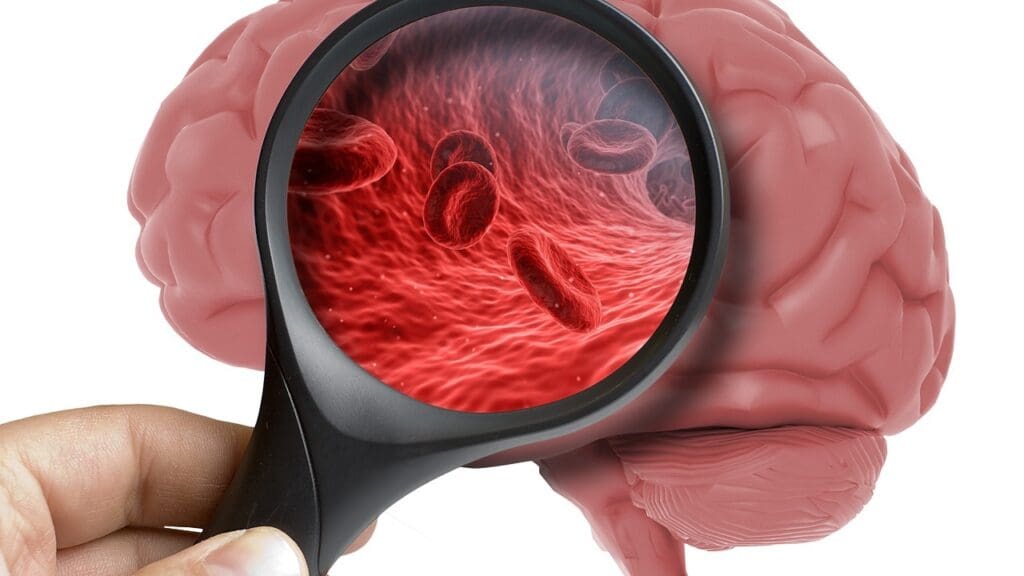
A coma is a long-lasting state of being unconscious. People in a coma don’t react to their surroundings. It can happen due to serious health issues like traumatic brain injury, stroke, or lack of oxygen. Knowing how someone can wake up from a coma is important for both families and patients.
At Liv Hospital, we help families through the tough times of coma recovery. We explain what to expect during and after this serious condition. The chance of getting better from a coma depends on the reason, how long it lasts, and the patient’s health overall.
Key Takeaways
- Coma is a state of deep unconsciousness with unknown duration.
- Recovery chances depend on the cause and duration of the coma.
- Liv Hospital provides patient-centered care for coma patients.
- Understanding coma recovery stages is vital for patient support.
- Each patient’s recovery process is unique and requires personalized care.
Understanding What a Coma Actually Is

A coma is a serious medical condition where a person is very unresponsive. People in a coma can’t respond or know what’s happening around them. We’ll look into what a coma is, the levels of consciousness, and how it’s different from other unconscious states.
Medical Definition of a Coma State
A coma is when someone stays unconscious for a long time and doesn’t react to anything. Doctors use the Glasgow Coma Scale to check how awake a coma patient is. This scale looks at eye opening, talking, and movement to see how severe the coma is.
Different Levels of Consciousness
Coma patients can be at different levels of awareness. Some might just open their eyes but not respond. Others might show some awareness. Knowing this helps doctors decide the best treatment.
How Comas Differ From Other Unconscious States
Comas are different from other states like brain death or locked-in syndrome. Brain death means the brain has stopped working for good. Locked-in syndrome means someone is aware but can’t move or talk. It’s important to diagnose correctly to give the right care.
Common Causes Leading to Coma States

A coma can be caused by many things, like severe injuries and medical issues. Knowing what causes a coma helps us understand it better. It also shows us how someone might get better.
Traumatic Brain Injuries
Traumatic brain injuries are a big reason for comas. The injury’s severity can affect recovery chances. Severe head trauma can cause lasting or permanent brain damage.
Stroke and Oxygen Deprivation
A stroke happens when brain blood flow stops. This can be due to a blockage or a blood vessel rupture. If the stroke is severe, it can lead to a coma. Oxygen not reaching the brain, or hypoxia, can also damage brain cells and cause a coma.
Infections and Toxic Exposure
Some infections, like meningitis or encephalitis, can cause brain inflammation. This might lead to a coma. Exposure to toxins, like drug overdoses or environmental pollutants, can also make someone comatose.
Medical Conditions and Metabolic Issues
Many medical conditions can cause a coma if not treated. For example, diabetes, liver or kidney failure, and metabolic disorders can be dangerous. Diabetic ketoacidosis or hepatic encephalopathy can make someone comatose.
Understanding these causes helps us see how complex comas are. It also shows why quick and right medical help is so important.
What Happens to the Body During a Coma
When someone is in a coma, their body changes a lot. These changes affect how the body works. Knowing about these changes helps doctors give better care.
Brain Activity and Awareness
In a coma, the brain works much less than usual. People in comas might show some brain activity or none at all. How much brain activity a person has can tell doctors how serious the coma is and if they might get better.
Physical Functions and Reflexes
Coma patients often have physical changes. These include:
- Reduced muscle tone and reflexes
- Impaired ability to swallow
- Changes in heart rate and blood pressure
- Variations in body temperature
Doctors can help manage these changes with the right care. This includes watching the patient closely and using supportive therapies.
Can You Breathe in a Coma?
One big worry for coma patients is breathing. Some can breathe on their own, while others need a machine to help them.
Natural Breathing Versus Ventilator Support
Whether a coma patient needs a ventilator depends on their condition and how well they can breathe. Those who breathe naturally are usually less sick than those who need a machine. But, even those who can breathe on their own need close watch and support to keep their breathing stable.
Helping coma patients is a complex job. Doctors and nurses work hard to understand and manage the body’s changes. This way, they can give better care to patients and their families.
Medical Care for Coma Patients
Managing coma patients requires a team effort from many medical fields and technologies. We offer full care in intensive care units (ICUs). Here, patients get constant monitoring and treatment.
Intensive Care Unit Procedures
In ICUs, we stick to strict care plans for coma patients. We check their brain function, vital signs, and health often. Our healthcare team is ready to act fast if a patient’s condition changes.
Monitoring and Life Support Systems
Coma patients often need life support to keep their body working. We use top-notch monitoring tools to watch their heart rate, blood pressure, and oxygen levels. This helps us act quickly if any problems come up.
Preventing Complications
Stopping complications is key in caring for coma patients. We work hard to prevent infections, bed sores, and other issues. Our team collaborates with other experts to give our patients the best care.
The Role of Healthcare Professionals
Healthcare workers are essential in caring for coma patients. Our team includes doctors, nurses, therapists, and more. They work together to create care plans tailored to each patient. We are dedicated to giving top-notch care to help our patients recover.
“The care in ICUs is vital for coma patients to get better. Our team is committed to delivering outstanding care that meets each patient’s unique needs.”
Can Someone Wake Up From a Coma?
Recovering from a coma depends on many factors. The path to waking up can be complex. It’s influenced by the coma’s cause, how long it lasts, and the person’s health.
Statistical Likelihood of Recovery
Studies show that coma recovery chances vary a lot. The coma’s cause plays a big role. For example, brain injuries and infections have different recovery rates.
As NHS Inform points out, knowing the cause is key to predicting recovery.
Factors That Influence Awakening
Many things affect whether someone can wake up from a coma. These include:
- Cause of the Coma: The reason for the coma greatly impacts recovery chances.
- Duration of the Coma: Longer comas mean lower chances of full recovery.
- Age and Health of the Patient: Younger, healthier people tend to recover better.
- Quality of Care: Good medical care can help improve recovery chances.
Timeframes for Possible Recovery
Recovery times from a coma vary a lot. Some wake up in days, while others stay in a coma for months.
Short-Term Versus Long-Term Comas
Short-term and long-term comas have different recovery paths. Short-term comas often lead to better outcomes. Long-term comas usually mean more severe brain damage and lower recovery chances.
Every person’s recovery is unique. Our healthcare team is committed to providing the best care and support along the way.
The Natural Process of Waking From a Coma
Coming out of a coma is a unique journey for each person. It involves different stages of getting better. As patients start to wake up, they go through various signs that show they are improving.
Stages of Increasing Responsiveness
The recovery process has several stages. It starts with minimal responses and ends with full consciousness. At first, patients might show slight movements or react to things around them. These signs get stronger and more frequent over time.
- At the start, patients might make small movements or change their facial expressions.
- As they get better, they might start to respond to voices or become more aware of their surroundings.
Signs That Someone Is Emerging From a Coma
There are several signs that a patient is coming out of a coma. These include returning reflexes and more physical responses. One key sign is the ability to cough. This shows that the brain is getting better.
Is Coughing in a Coma a Good Sign?
Coughing is a good sign because it means the brain is getting stronger. Coughing helps keep the airways clear, which lowers the risk of breathing problems.
Other Reflexes That Indicate Improvement
Other signs that a patient is getting better include:
- Gag reflex
- Ability to swallow
- Reaction to pain
These signs are important because they show the brain is healing. They also show the patient is getting better overall.
How Do You Get Out of a Coma?
Getting out of a coma needs a mix of medical interventions and stimulation techniques. Each person’s recovery path is unique. It depends on why they were in a coma, their health, and any brain damage.
Medical Interventions and Treatments
Doctors play a big role in helping patients get better. They manage medicines to reduce swelling in the brain. They also fight off infections and keep the patient’s body working right. Life support systems are often needed to keep the patient stable.
Stimulation Techniques Used by Professionals
Healthcare experts use different stimulation techniques to help patients wake up. They might talk to the patient or play music they know. They also use gentle touch or movement to help.
Emerging Therapies and Research
New research is looking into better ways to help coma patients get better. They’re studying pharmacological interventions and neurostimulation techniques.
Experimental Approaches to Coma Recovery
Some studies are looking at new treatments. This includes deep brain stimulation and transcranial magnetic stimulation. They want to see if these can help coma patients recover.
What Happens When You Wake Up From a Coma
When someone wakes up from a coma, they often feel very confused. They start a long journey to get better.
Initial Confusion and Disorientation
Patients usually feel lost and disoriented when they wake up. Their brain needs time to adjust to handling information again.
Post-Traumatic Amnesia
Many people can’t make new memories after waking up. This makes it hard for them and their families to remember recent things.
Cognitive and Physical Challenges
Getting better from a coma is tough. Patients have to learn things again and get their strength back. They also face lasting effects of their injury.
The Reality Versus Movie Portrayals
Coma recovery is not shown accurately in movies. They make it seem like people wake up fully and quickly. But, in real life, it’s a slow and hard process.
Knowing what really happens when someone wakes up from a coma helps set realistic hopes. It’s a tough road, but with the right care, many people make big strides.
The Recovery Journey After Waking
When patients wake up from a coma, they start a journey of healing. This journey covers physical, mental, and emotional health. It’s unique for each person, based on their health, the coma’s cause, and their overall well-being.
The path to recovery includes special therapies and programs. These are designed to meet each person’s needs. Studies show that these programs help a lot in getting better after a coma.
Rehabilitation Programs
Rehab programs are key for patients to get back their lost abilities. They help patients adjust to any lasting changes. These programs involve a team of experts like physical, occupational, speech therapists, and psychologists.
Physical Therapy and Relearning Skills
Physical therapy is essential for patients to regain strength and mobility. Through exercises, patients learn to walk, stand, and do daily tasks again.
Key components of physical therapy include:
- Exercise programs tailored to the patient’s abilities and goals
- Balance and coordination training
- Assistance with daily living activities
Cognitive and Speech Therapy
Cognitive therapy helps patients with memory loss and attention problems. Speech therapy focuses on communication issues, like speech and swallowing disorders.
Timeline and Expectations for Improvement
Recovery time varies a lot. Some patients improve quickly, while others take longer. The speed of recovery depends on the injury’s severity, the patient’s age, and their health.
Being patient and supportive is very important during this time. With the right therapy and a caring team, many patients see big improvements in their lives.
Life After a Coma: Long-Term Outcomes
Life after a coma is complex and varies greatly from person to person. The recovery path depends on many factors. These include the coma’s cause, how long it lasted, and the person’s health.
Potential Lasting Effects
Coma survivors may face lasting effects. These can include physical disabilities, memory loss, and changes in behavior. Rehabilitation is key in helping them regain lost functions and adjust to changes.
Quality of Life Considerations
The quality of life after a coma varies a lot. Brain damage, other health issues, and support from family and healthcare providers matter a lot. We need to think about these when looking at long-term outcomes.
Success Stories and Positive Outcomes
Many coma survivors make big recoveries. Rehabilitation programs tailored to their needs are essential. There are many stories of people regaining their independence and joining their communities again.
Factors That Contribute to Better Recovery
Several factors help with better recovery. These include:
- Early and intensive rehabilitation
- Strong support from family and caregivers
- Access to specialized healthcare services
- A positive and resilient attitude
By understanding and using these factors, we can help coma survivors recover better.
Supporting a Loved One Coming Out of a Coma
Family support is key when someone comes out of a coma. It affects their recovery and well-being. The journey ahead is complex and challenging for both the patient and their family.
What Family Members Can Expect
When a loved one wakes up from a coma, family members face many emotions and challenges. They might feel confused, disoriented, and not recognize their surroundings or loved ones. It’s important to create a supportive and calm environment.
How to Assist in Recovery
Helping with recovery involves several steps. Provide emotional support, assist with physical therapy, and ensure they follow their medical plan. It’s also helpful to learn about their condition and the recovery process.
Emotional Support and Resources
Emotional support is vital for coma recovery. Family members can offer this by being there, listening, and encouraging. Seeking counseling or joining support groups can also help both the patient and their family.
Adjusting to New Realities
Life after a coma brings big changes for the patient and their family. Be patient and flexible, as recovery is long and unpredictable. A structured routine and realistic goals can help navigate these changes.
| Support Strategies | Description | Benefits |
|---|---|---|
| Emotional Support | Being present and encouraging | Enhances patient’s mental well-being |
| Physical Therapy Assistance | Helping with rehabilitation exercises | Improves physical recovery |
| Medical Treatment Adherence | Ensuring patient follows treatment plan | Supports overall recovery |
Conclusion
Understanding coma recovery is key for patients and their families. We’ve looked at coma’s medical side, causes, and the recovery path. We’ve also talked about long-term effects.
A coma is a deep sleep state caused by brain injuries, infections, or other medical issues. The recovery path is long and tough. It includes medical care, rehab, and emotional support.
Every person’s recovery is different. The cause of the coma, the patient’s health, and the care they get all matter. These factors help decide how well someone will recover.
It’s vital to raise awareness about coma and support those affected. This way, we can better care for them. It helps improve their life quality.
In short, coma recovery is complex and needs a supportive and informed approach. We hope this summary helps. It shows why knowing about coma is so important.
What happens when you are in a coma?
Being in a coma means your body is very unconscious. It shows little brain activity and doesn’t react to anything around it. We give them the best care to help them get better.
What are the common causes of a coma?
Comas can happen for many reasons. These include brain injuries, strokes, infections, and other health problems. Knowing why it happened helps us find the right treatment.
Can someone breathe in a coma?
Some coma patients can breathe on their own. Others need help from a ventilator. We watch their breathing closely to make sure they get the right help.
Can someone wake up from a coma?
Yes, some coma patients can wake up. But how likely they are to wake up depends on many things. These include why they were in a coma, how long they were there, and their overall health.
What happens when you wake up from a coma?
When someone wakes up, they might feel confused and disoriented. They might also face challenges with thinking and moving. We help them with therapy and rehabilitation to get better.
Is coughing in a coma a good sign?
Yes, coughing is a good sign. It means their body’s reflexes are coming back. We watch for any signs of getting better.
How do you get out of a coma?
Getting out of a coma takes medical help, special techniques, and new treatments. We work with each patient to create a plan that helps them recover.
What is the recovery journey like after waking from a coma?
After waking up, patients go through rehabilitation. This includes physical, cognitive, and speech therapy. We help them learn new skills and adjust to any lasting effects.
How can family members support their loved ones recovering from a coma?
Family members are very important in recovery. They can offer emotional support, help with therapy, and find resources for adjusting to new realities.
What are the long-term outcomes for individuals who have experienced a coma?
Outcomes vary based on the cause and treatment. We aim to improve their quality of life and help them recover as much as possible.
What happens when you are in a coma in the hospital?
In the hospital, coma patients get constant care and monitoring. This includes life support and steps to prevent complications.
How long can someone be in a coma?
Coma duration can be very different. It can last from a few days to months. We provide ongoing care and support, no matter how long.
What are the signs that someone is emerging from a coma?
Signs of coming out of a coma include more responsiveness and brain activity. We watch for these signs to adjust their treatment plan.
References
- Gjel Accident Attorneys (Recovery from a Coma) : https://www.gjel.com/recovery-from-a-coma
- CTBTA (10 Stages of Brain Injury Recovery) : https://www.ctbta.org/news-blog/10-stages-brain-injury-recovery
- Sri Ramakrishna Hospital (4 Stages of Coma/Duration) : https://www.sriramakrishnahospital.com/blog/icu/identify-the-4-stages-of-coma-how-long-does-coma-last
- Brain Foundation (Coma) : https://brainfoundation.org.au/disorders/coma
- NeuLife Rehabilitation (10 Recovery Stages After a Brain Injury) : https://neuliferehab.com/what-are-the-10-recovery-stages-after-a-brain-injury




































